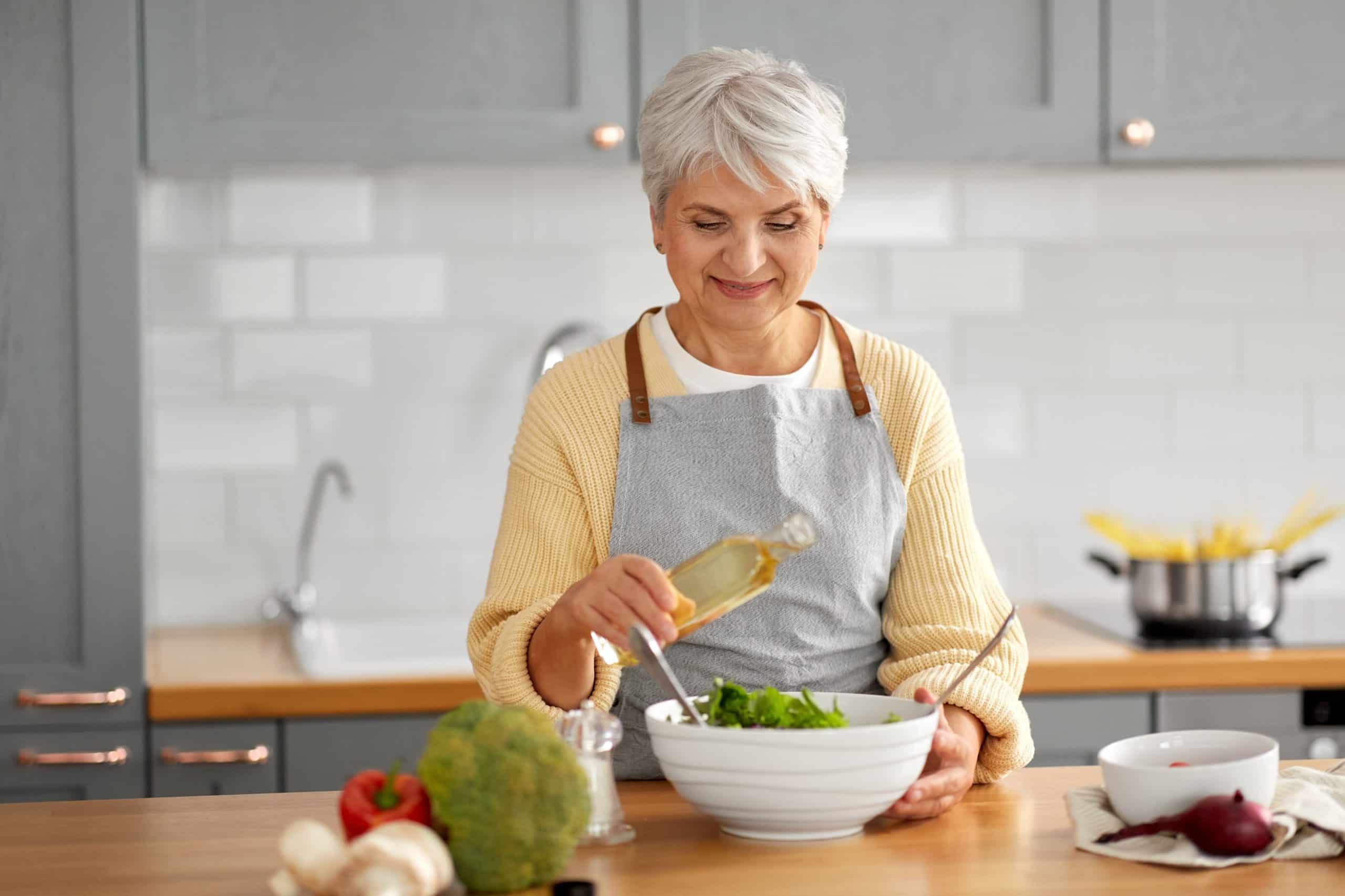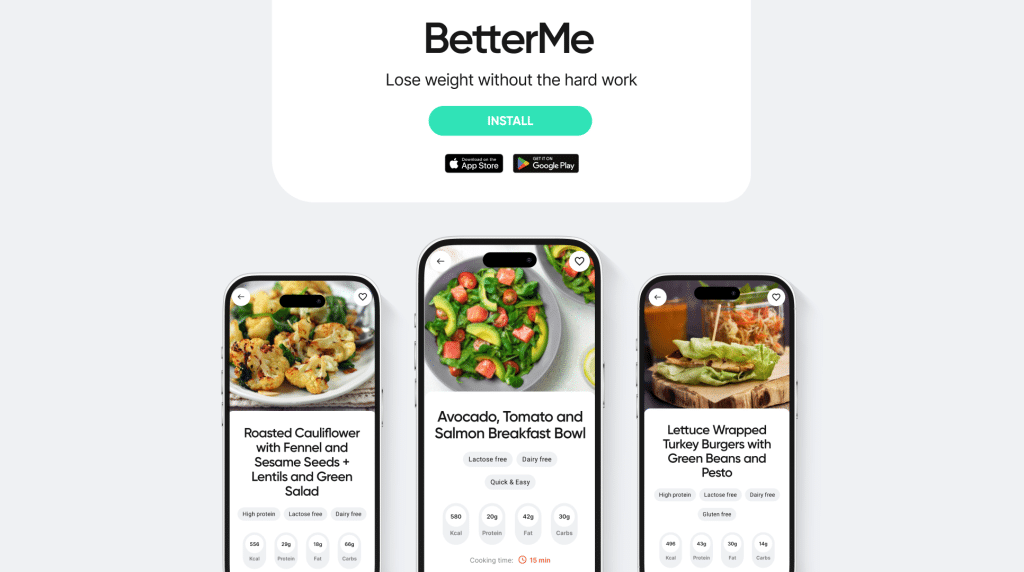As we age, our bodies change in various ways that can affect the absorption and utilization of nutrients (1). This is why it’s important for seniors over 70 to pay attention to their vitamins intake and ensure they get enough of the essential nutrients to maintain their health.
A nutrient-dense diet can provide seniors with the vitamins they need.
The Dietary Guidelines for Americans 2020-2025 defines a nutrient-dense diet as “one that’s lean or low-fat, prepared with minimal added sugars, refined starches, saturated fat, or sodium” (2).
Unfortunately, due to age-related factors such as decreased appetite, difficulty chewing or swallowing, chronic conditions, and medication use, many seniors may not be able to obtain all the necessary vitamins through diet alone (3).
When necessary, vitamin supplements can be an excellent way for seniors to get the vitamins and minerals they need (3).
However, it’s important to note that not all supplements are created equal and some may even interact with medications or have potential side effects. It’s best to consult a healthcare provider before you start any supplement regimen.
So, which vitamins are specifically important for seniors over 70? Let’s take a look at some of the essential ones.
What Are the Most Important Vitamins for Seniors Over 70?
The most important vitamins for seniors over 70 include vitamins D, B12, and B6 among others. Minerals such as calcium and magnesium are also essential for maintaining bone health.
Here is a table that summarizes the recommended daily intake for seniors over 70 according to the National Institutes of Health (4):
| Nutrient | Men over 70 | Women over 70 |
|---|---|---|
| Vitamin A | 900 mcg RAE each day | 700 mcg RAE each day |
| Vitamin B1 (Thiamin) | 1.2 mg each day | 1.1 mg each day |
| Vitamin B3 (Niacin) | 16 mg each day | 14 mg each day |
| Vitamin B6 (Pyridoxine) | 1.7 mg each day | 1.5 mg each day |
| Vitamin B12 (Cobalamin) | 2.4 mcg each day | 2.4 mcg each day |
| Vitamin C | 90 mg each day | 75 mg each day |
| Vitamin D | 20 mcg (800 IU), but not more than 100 mcg (4,000 IU) | 20 mcg (800 IU), but not more than 100 mcg (4,000 IU) |
| Vitamin E | 15 mg each day | 15 mg each day |
| Vitamin K | 120 mcg each day | 90 mcg each day |
| Folate (Vitamin B9) | 400 mcg DFE each day | 400 mcg DFE each day |
| Calcium | 1,200 mg each day, but not more than 2,000 mg each day | 1,200 mg each day, but not more than 2,000 mg each day |
| Magnesium | 420 mg each day | 320 mg each day |
| Potassium | 3,400 mg each day | 2,600 mg each day |
| Sodium | No more than 2,300 mg each day, those with high blood pressure or prehypertension should limit intake to no more than 1,500 mg each day | No more than 2,300 mg each day, those with high blood pressure or prehypertension should limit intake to no more than 1,500 mg each day |
Vitamin A
Men: 900 mcg RAE each day
Women: 700 mcg RAE each day
Vitamin A is essential for maintaining good vision, a healthy immune system, and proper functioning of the heart, lungs, and eyes (5). For seniors over 70, adequate levels can help prevent age-related vision problems, such as cataracts and macular degeneration.
You’ll find vitamin A in a variety of food sources, including:
- Carrots
- Sweet potatoes
- Spinach
- Kale
- Red bell peppers
- Eggs
- Fortified cereals
- Beef liver
- Dairy products
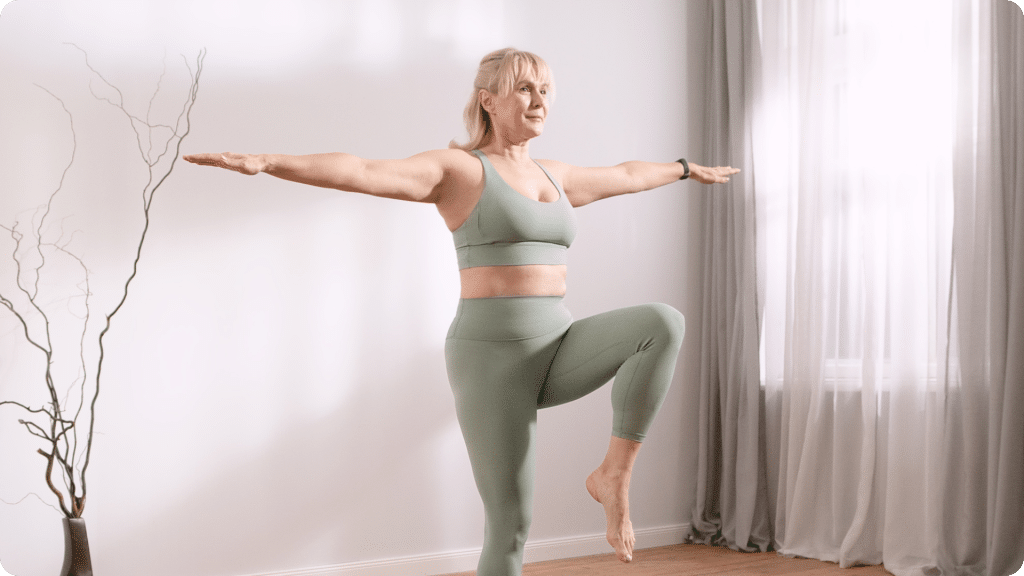
Vitamin B1 (Thiamin)
Men: 1.2 mg each day
Women: 1.1 mg each day
One of the most important vitamins for seniors over 70 is Thiamin. It plays a vital role in energy production and helps with the functioning of the brain and nervous system. For seniors, it can help with memory and cognitive health, particularly as the risk of neurological decline increases with age (6). You can boost your thiamin intake with:
- Whole grains such as brown rice and oats
- Legumes such as lentils and black beans
- Nuts and seeds
- Pork
- Fortified breads and cereals
- Asparagus
Vitamin B3 (Niacin)
Men: 16 mg each day
Women: 14 mg each day
Niacin is important for converting food into energy and supports proper digestion and skin health. It also plays a role in lowering cholesterol levels, which is particularly beneficial for seniors who are at risk of cardiovascular issues (7). Delicious sources of niacin include:
- Chicken breast
- Turkey
- Tuna
- Salmon
- Peanuts
- Brown rice
- Avocado
Vitamin B6 (Pyridoxine)
Men: 1.7 mg each day
Women: 1.5 mg each day
Vitamin B6 is essential for protein metabolism, immune function, and cognitive development. It may also help improve mood and reduce symptoms of depression in certain circumstances, which may be particularly important for older adults (8). Seniors can find vitamin B6 in:
- Chickpeas
- Fish such as salmon and tuna
- Potatoes
- Bananas
- Poultry
- Fortified cereals
- Spinach
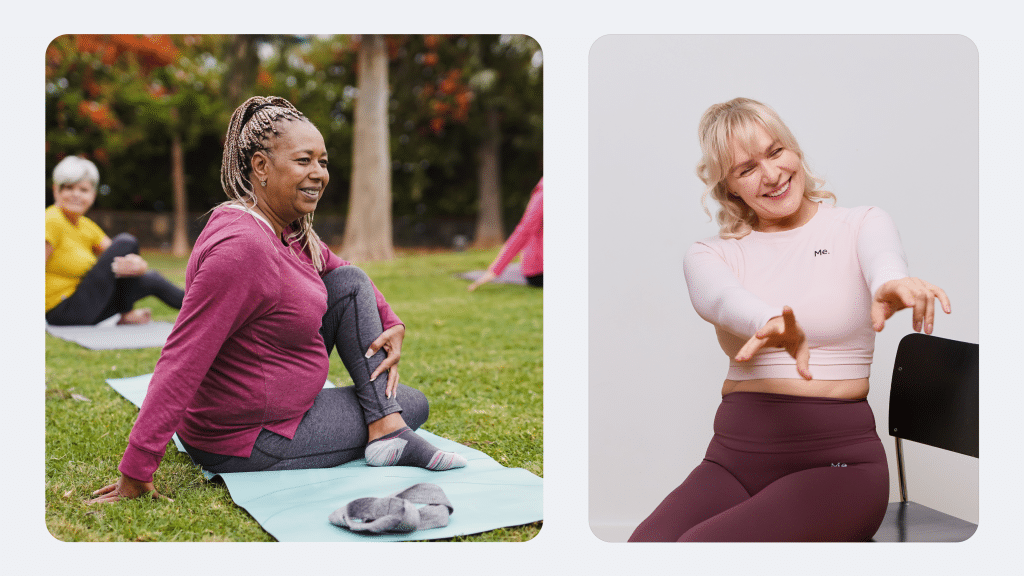
Vitamin B12 (Cobalamin)
Men and Women: 2.4 mcg each day
Vitamin B12 is essential for red blood cell formation and maintaining a healthy nervous system (9). Seniors often have difficulty absorbing this vitamin, which can lead to deficiencies that affect energy levels and cognitive function. Good sources include:
- Fish, especially salmon and trout
- Shellfish such as clams
- Meat (beef, liver)
- Dairy products (milk, cheese)
- Eggs
- Fortified plant-based milks
Vitamin C
Men: 90 mg each day
Women: 75 mg each day
Vitamin C is well-known for its role in immune health, but it also helps with collagen production, dental health, and the absorption of iron. This vitamin helps combat oxidative stress, which makes it particularly valuable for seniors (10). You can find vitamin C in:
- Oranges and orange juice
- Strawberries
- Kiwis
- Bell peppers
- Broccoli
- Tomatoes
- Brussels sprouts
Vitamin D
Men and Women: 20 mcg (800 IU), but not more than 100 mcg (4,000 IU)
Vitamin D is key for bone health, as it helps with calcium absorption. For seniors, maintaining adequate vitamin D levels is crucial for preventing osteoporosis and fractures (11). Exposure to sunlight is one way to get vitamin D, but you should also consider these food sources:
- Fatty fish (salmon, mackerel)
- Cod liver oil
- Egg yolks
- Fortified dairy products
- Fortified orange juice
- Mushrooms exposed to UV light

Vitamin E
Men and Women: 15 mg each day
Vitamin E acts as an antioxidant, combating oxidative stress and potentially lowering the risk of chronic diseases. It also helps with immune function and skin health, both of which are essential for seniors (12). You can load up on vitamin E through:
- Nuts (especially almonds and hazelnuts)
- Seeds (sunflower seeds)
- Spinach
- Avocados
- Kiwi s
- Fortified cereals
- Vegetable oils (sunflower, safflower)
Want to spring-clean your diet, skyrocket your self-confidence, and shatter your insecurities? Check out the BetterMe: Health Coaching app and set this plan in motion!
Vitamin K
Men: 120 mcg each day
Women: 90 mcg each day
Vitamin K is essential for blood clotting and maintaining bone health (13). An adequate intake of vitamins can help seniors over 70 avoid complications related to bleeding and strengthen bone density. Great sources include:
- Leafy green vegetables (kale, spinach)
- Broccoli
- Brussels sprouts
- Green beans
- Fermented dairy products (such as natto)
- Prunes

Folate (Vitamin B9)
Men and Women: 400 mcg DFE each day
Folate is vital for DNA synthesis and repair and red blood cell production, and plays a role in mood regulation. For seniors over 70 vitamins can help reduce the risk of cognitive decline and improve overall health (14). Incorporate folate-rich foods such as:
- Leafy greens (spinach, romaine)
- Beans and legumes
- Avocados
- Fortified cereals
- Bananas
- Enriched bread and pasta
Read more: Vitamins For Energy And Tiredness: Benefits, And Which Foods To Eat
Calcium
Men and Women: 1,200 mg each day, but not more than 2,000 mg each day
Calcium is essential for strong bones and teeth, making it particularly important for seniors to minimize the risk of fractures (15). It also plays a role in heart and muscle function. Good sources of calcium include:
- Dairy products (milk, cheese, yogurt)
- Leafy green vegetables (collard greens, kale)
- Fortified plant-based milks
- Sardines, canned salmon, and other canned fish with bones
- Tofu made with calcium sulfate
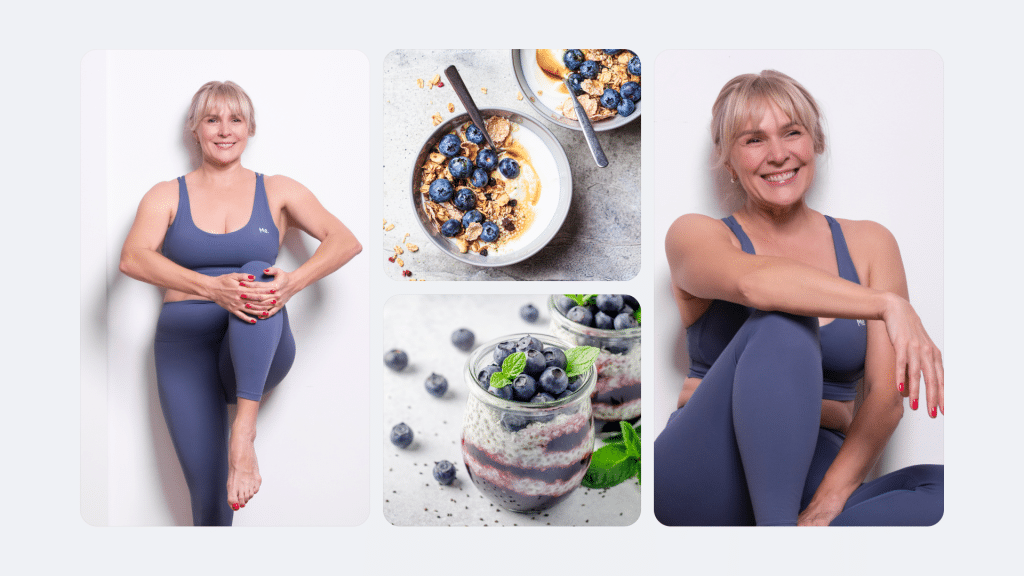
Magnesium
Men: 420 mg each day
Women: 320 mg each day
Magnesium supports over 300 biochemical reactions in the body, including muscle and nerve function, blood sugar regulation, and bone health. Ensuring seniors have adequate magnesium may help reduce the risk of diabetes and heart disease (16). Some magnesium-rich foods include:
- Nuts (almonds, cashews)
- Seeds (pumpkin seeds, chia seeds)
- Whole grains (brown rice, quinoa)
- Leafy green vegetables (spinach)
- Legumes (black beans, lentils)
Potassium
Men: 3,400 mg each day
Women: 2,600 mg each day
Potassium is essential for maintaining proper blood pressure and heart function. As we age, potassium can help offset the negative impacts of sodium and support overall cardiovascular health (17). Seniors can find potassium in:
- Bananas
- Potatoes
- Spinach
- Avocados
- Beans
- Yogurt
- Oranges
Sodium
Men and Women: No more than 2,300 mg each day; those with high blood pressure or prehypertension should limit intake to no more than 1,500 mg each day
While sodium is essential for fluid balance and cellular homeostasis, too much can lead to high blood pressure and put seniors at risk for heart disease (18). To limit your sodium intake, limit ultra-processed foods, read nutrition labels carefully, and try flavoring meals with herbs and spices instead of salt.
What Vitamins Should Seniors over 70 Take?
70-year-olds should aim to get their daily vitamin and mineral intake from a balanced diet that includes a variety of nutrient-rich foods. This is because whole foods contain a combination of vitamins, minerals, and other important nutrients that work together to support overall health.
However, due to a variety of factors such as dietary restrictions or poor absorption, seniors may benefit from taking a daily multivitamin or specific supplements to ensure they meet their nutritional needs (3).
It’s important to consult a healthcare professional before you start any new supplement regimen. They can assess any potential interactions with medications and determine if a supplement is necessary for an individual’s specific health needs.
The vitamin supplement for a 70-year-old will depend on their individual health needs and deficiencies. However, some common supplements to consider for seniors include:
- Calcium and vitamin D for bone health
- Vitamin B12 for energy and nerve function
- Omega-3 fatty acids for heart health and cognitive function
- Coenzyme Q10 (CoQ10) for energy production and cellular health
Seniors should make sure that they choose high-quality vitamins from reputable brands and follow recommended dosages.
What Are the Healthiest Vitamins for Seniors Over 70 to Take Every Day?
The healthiest vitamin to take every day is one that’s tailored to an individual’s specific needs. While there are some essential vitamins and minerals that most people need, such as vitamin C and potassium, the best vitamin regimen will vary depending on factors such as age, sex, health conditions, and lifestyle habits.
For optimal health, it’s recommended to focus on meeting daily nutrient needs through a well-rounded diet filled with whole foods rather than relying solely on supplements. However, if necessary, a daily multivitamin can help fill in any nutritional gaps. It’s important to choose a high-quality multivitamin that contains a variety of vitamins and minerals at appropriate doses for your age and sex. Talk to your healthcare provider to get individualized recommendations.
Read more: Unlocking The Potential Of Vitamins For Anxiety Relief
What Are the Best Anti-aging Vitamins for Seniors Over 70?
The number one anti-aging vitamin for seniors is vitamin C. As we age, our bodies produce less collagen, which can lead to wrinkles and sagging skin. Vitamin C plays a vital role in collagen production, which helps keep the skin looking youthful and firm.
In addition, vitamin C is a powerful antioxidant that helps protect against cell damage caused by free radicals, which contribute to the aging process (19).
Other important vitamins and minerals for healthy aging include:
- Vitamin E: another antioxidant that protects against cellular damage (20).
- Vitamin D: supports bone health and may help prevent falls in seniors (11).
- B Vitamins (B6, B9, B12): essential for brain function and nerve health (21).
In addition to taking care of nutrition, seniors should prioritize regular exercise, stress management, and healthy lifestyle habits to maintain optimal health and vitality as they age.
By incorporating a variety of nutrient-rich foods in their diet and considering supplements if necessary, seniors can support their overall well-being during the aging process.
How Can I Boost My Energy After 70?
You can boost your energy after 70 using diet and lifestyle changes. Here are a few tips to help seniors feel more energized:
1. Eat Nutrient-Dense Meals
The Dietary Guidelines for Americans 2020-2025 defines a nutrient-dense diet as “one that’s lean or low-fat, prepared with minimal added sugars, refined starches, saturated fat, or sodium” (2).
To ensure adequate energy levels, seniors should aim to incorporate a variety of foods from all food groups and focus on nutrient-dense options such as fruits, vegetables, lean proteins, whole grains, and healthy fats.
2. Get Regular Exercise
Physical activity helps boost energy levels by increasing circulation and delivering oxygen and nutrients to cells throughout the body. Seniors can start with low-impact activities such as walking, swimming, or yoga to improve their strength, flexibility, and overall well-being (22).
It’s important to consult a healthcare professional before you start any new exercise routine.
3. Hydrate Well
Dehydration can lead to fatigue and make it difficult for the body to function properly. Seniors may need to increase their fluid intake as they age to account for changes in their body’s water balance. Aim to drink plenty of water throughout the day and avoid sugary drinks that can cause energy crashes.
4. Get Enough Sleep
As we age, our sleep patterns may change, which makes it more difficult to get a full night’s rest. Seniors should aim for 7-9 hours of sleep each night to feel well-rested and energized during the day (23). Establishing a relaxing bedtime routine and creating a comfortable sleeping environment can help improve sleep quality.
FAQs
What is the number one vitamin for seniors?
Seniors need a variety of vitamins and minerals to support their health, but one of the most crucial ones is vitamin D. This vitamin helps with calcium absorption for strong bones and muscles and supports immune function(24). Talk to your doctor if you suspect you may not be getting enough vitamin D. They can do a blood test and recommend supplements if necessary.
How much B12 should a 70-year-old take daily?
A 70-year-old should aim for 2.4 micrograms (mcg) of vitamin B12 per day, as recommended by the National Institutes of Health (8).
Ideally, this should come from a balanced diet; foods such as fish, poultry, eggs, and fortified cereals are excellent sources of B12. However, if a senior is unable to meet their daily needs through diet alone, they may consider taking a B12 supplement after consulting a healthcare professional.
What is the best fruit for seniors to eat?
Eating a variety of fruits is important for seniors as they provide essential vitamins, minerals, and fiber. Some of the best fruits for seniors include:
- Berries (blueberries, strawberries, raspberries): high in antioxidants and anti-inflammatory compounds.
- Apples: rich in fiber and vitamin C
- Bananas: a good source of potassium
It’s recommended to aim for 1.5-2 servings of fruit per day as part of a well-rounded diet.
How much sleep do 70-year-olds need?
The National Sleep Foundation recommends adults aged 65+ aim for 7-8 hours of sleep per night (25). However, each person’s individual needs may vary slightly. It’s important to listen to your body and prioritize getting enough rest to feel energized and well-rested during the day.
Is Greek yogurt good for seniors?
Greek yogurt is a nutritious option for seniors as it’s high in protein, calcium, and probiotics. These nutrients can support bone health, digestive health, and help maintain muscle mass (26). Choose plain or low-sugar options rather than flavored varieties that may be high in added sugars.
Can taking vitamins help prevent memory loss?
Some vitamins and supplements have shown promise in supporting brain function and reducing the risk of age-related memory loss. These include omega-3 fatty acids, B vitamins, vitamin E, and CoQ10 (27). However, more research is required in this area to determine the specific role of these nutrients in preventing memory loss. An overall healthy lifestyle that includes a balanced and varied diet is always your best bet.
Vitamins for Seniors Over 70: Conclusion
As we age, our nutritional needs change, and more attention is required to certain vitamins and minerals in order to maintain good health. By incorporating the above nutrients into a well-balanced diet, seniors can support their energy levels, immune function, bone health, and overall quality of life.
It’s also important for seniors to consult a healthcare professional or registered dietitian to determine specific nutrient needs based on individual health status and any medications being taken. With proper nutrition, seniors can continue to live vibrant and fulfilling lives.
DISCLAIMER:
This article is intended for general informational purposes only and does not serve to address individual circumstances. It is not a substitute for professional advice or help and should not be relied on for making any kind of decision-making. Any action taken as a direct or indirect result of the information in this article is entirely at your own risk and is your sole responsibility.
BetterMe, its content staff, and its medical advisors accept no responsibility for inaccuracies, errors, misstatements, inconsistencies, or omissions and specifically disclaim any liability, loss or risk, personal, professional or otherwise, which may be incurred as a consequence, directly or indirectly, of the use and/or application of any content.
You should always seek the advice of your physician or other qualified health provider with any questions you may have regarding a medical condition or your specific situation. Never disregard professional medical advice or delay seeking it because of BetterMe content. If you suspect or think you may have a medical emergency, call your doctor.
SOURCES:
- Nutrition Concerns for Aging Populations – Providing Healthy and Safe Foods As We Age (2010, ncbi.nlm.nih.gov)
- Dietary Guidelines for Americans, 2020–2025 (2021, ncbi.nlm.nih.gov)
- Nutritional Interventions for Elderly and Considerations for the Development of Geriatric Foods (2019, ncbi.nlm.nih.gov)
- Vitamins and Minerals for Older Adults (2021, nia.nih.gov)
- Vitamin A and Carotenoids (2023, ods.od.nih.gov)
- The importance of thiamine (vitamin B1) in humans (2021, ncbi.nlm.nih.gov)
- Vitamin B3 (2024, ncbi.nlm.nih.gov) 7
- Vitamin B6 (2023, ods.od.nih.gov)
- Vitamin B12 (2024, ods.od.nih.gov)
- Vitamin C in Disease Prevention and Cure: An Overview (2013, ncbi.nlm.nih.gov)
- The role of vitamin D in maintaining bone health in older people (2017, journals.sagepub.com)
- The Role of Vitamin E in Human Health and Some Diseases (2014, ncbi.nlm.nih.gov)
- Vitamin K (2021, ods.od.nih.gov)
- Folate (2021, ods.od.nih.gov)
- The Role of Calcium in Human Aging (2015, ncbi.nlm.nih.gov)
- Magnesium and Human Health: Perspectives and Research Directions (2018, ncbi.nlm.nih.gov)
- How Potassium Can Help Control High Blood Pressure (2024, heart.org)
- Dietary Sodium and Health: More Than Just Blood Pressure (2016, ncbi.nlm.nih.gov)
- Vitamin C: An Antioxidant Agent (2017, intechopen.com)
- Vitamin E (2018, ncbi.nlm.nih.gov)
- B Vitamins: Functions and Uses in Medicine (2022, ncbi.nlm.nih.gov)
- The Importance of Physical Activity Exercise among Older People (2018, ncbi.nlm.nih.gov)
- A Good Night’s Sleep (2020, nia.nih.gov)
- Vitamin D (2024, ods.od.nih.gov)
- How Much Sleep Do You Really Need? (2020, thensf.org)
- Yogurt: role in healthy and active aging (2014, ncbi.nlm.nih.gov)
- Improving Cognitive Function with Nutritional Supplements in Aging: A Comprehensive Narrative Review of Clinical Studies Investigating the Effects of Vitamins, Minerals, Antioxidants, and Other Dietary Supplements (2023, ncbi.nlm.nih.gov)

